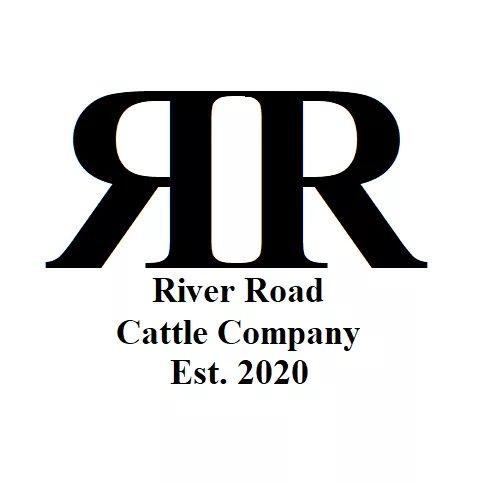The Health Benefits of Pasture-Raised Beef
- River Road Cattle Company

- Aug 5, 2025
- 3 min read
When it comes to choosing beef, many people are becoming more conscious about where their meat comes from and how it is raised. One option gaining popularity is pasture-raised beef. This type of beef is sourced from cattle that graze freely on open pastures, which can have a significant impact on the nutritional quality of the meat. Understanding the health benefits of pasture-raised beef can help you make informed decisions about your diet and overall well-being.
Nutritional Advantages of Pasture-Raised Beef
Pasture-raised beef offers several nutritional benefits compared to conventionally raised beef. Cattle that graze on natural grasses tend to produce meat with a healthier fat profile. This includes higher levels of omega-3 fatty acids, which are essential fats known to support heart health and reduce inflammation.
In addition to omega-3s, pasture-raised beef contains more conjugated linoleic acid (CLA), a type of fat that has been linked to improved immune function and reduced risk of certain diseases. The vitamin content is also enhanced, with higher amounts of vitamins A and E, both of which are important antioxidants.
Here are some key nutritional highlights of pasture-raised beef:
Higher omega-3 fatty acids: Supports cardiovascular health.
Increased CLA: May help with weight management and immune support.
More vitamins A and E: Protects cells from damage.
Better mineral content: Includes zinc and iron, essential for energy and immune function.
These nutritional improvements make pasture-raised beef a more wholesome choice for those looking to optimize their diet.

How Pasture-Raised Beef Is Different
The main difference between pasture-raised beef and conventional beef lies in the cattle's diet and living conditions. Pasture-raised cattle spend most of their lives grazing on open fields, eating a variety of grasses and plants. We combine our excellent pasture-grazing practice with access to grain to provide a balanced diet.
This natural grazing process not only improves the nutritional profile of the meat but also promotes better animal welfare. Cattle raised on pasture tend to be healthier and less stressed, which can positively affect the quality of the beef.
Moreover, pasture-raised beef production is often more environmentally sustainable. Grazing cattle help maintain healthy soil and reduce the need for chemical fertilizers. This method supports biodiversity and can contribute to carbon sequestration.
For those interested in learning more about the source and benefits of pasture-raised beef, River Road Cattle Company offers detailed information about their practices and commitment to quality.
Does pasture-raised mean 100% grass-fed?
It is important to clarify that "pasture-raised" does not always mean the same as "100% grass-fed." While both terms indicate that cattle have access to pasture, the specifics can vary.
Pasture-raised: Cattle spend a significant amount of time on pasture, but they may also receive supplemental feed such as grains or hay, especially during certain seasons.
100% grass-fed: Cattle are fed only grass and forage throughout their lives, without any grain supplementation.
Understanding this distinction helps consumers make better choices based on their preferences and dietary goals. If you want beef that is strictly grass-fed, look for labels that specify "100% grass-fed" or "grass-finished."
Both pasture-raised and grass-fed beef tend to be healthier options than conventional grain-fed beef, but the exact nutritional content can differ depending on the animal's diet and environment.

Practical Tips for Incorporating Pasture-Raised Beef into Your Diet
If you want to enjoy the health benefits of pasture-raised beef, here are some practical tips to get started:
Buy from trusted sources: Look for local farms or reputable suppliers that prioritize animal welfare and sustainable practices.
Check labels carefully: Ensure the beef is labeled as pasture-raised or grass-fed to guarantee quality.
Start with lean cuts: Choose cuts like sirloin or round for a leaner option with less saturated fat.
Cook with care: Use gentle cooking methods such as grilling, roasting, or slow cooking to preserve nutrients.
Balance your meals: Pair beef with plenty of vegetables and whole grains for a well-rounded diet.
By making these choices, you can enjoy delicious meals that support your health and the environment.
Why Choosing Pasture-Raised Beef Matters
Choosing pasture-raised beef is not just about nutrition; it also reflects a commitment to ethical and sustainable food systems. Supporting pasture-raised beef producers helps promote better animal welfare, reduces environmental impact, and encourages farming practices that protect natural resources.
From a health perspective, the improved fat profile and higher vitamin content can contribute to better heart health, stronger immunity, and overall wellness. For those who care about where their food comes from and how it is produced, pasture-raised beef offers a meaningful alternative to conventional meat.
Exploring options like pasture-raised beef can be a step toward a healthier lifestyle and a more sustainable future.







Comments